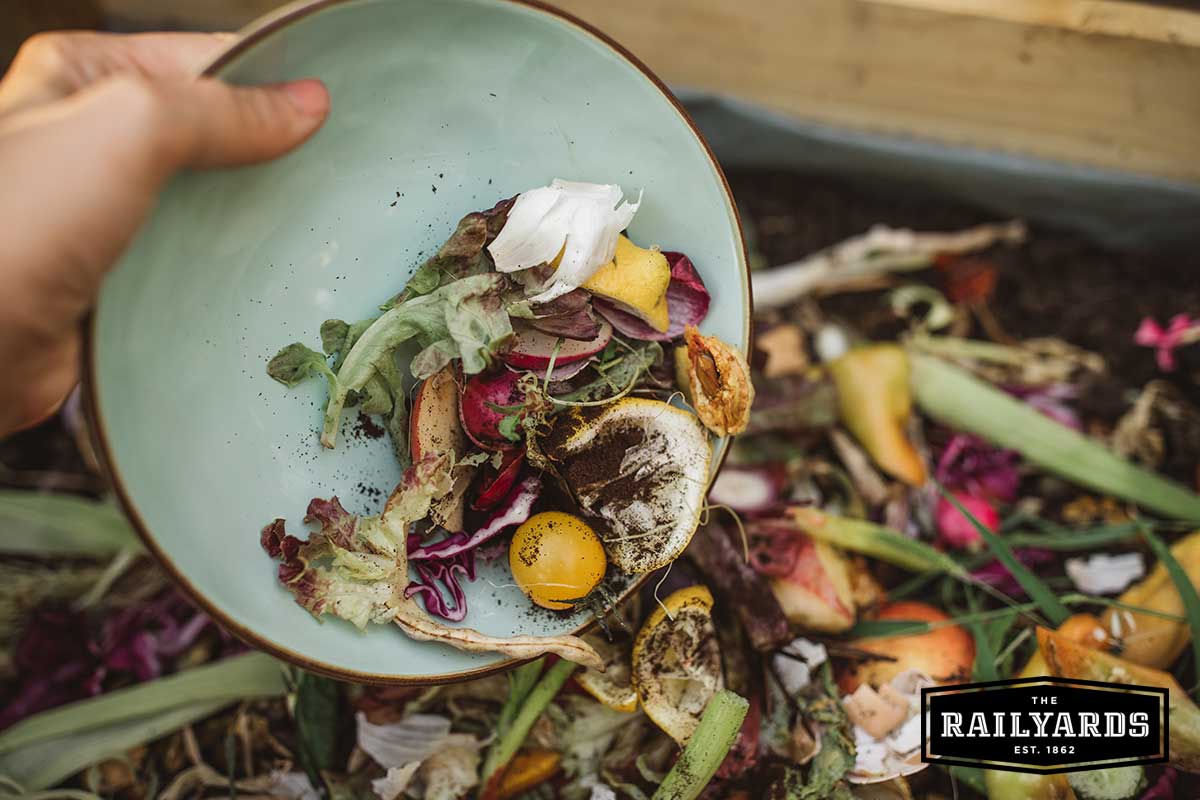
August 24, 2021 / Author: the Railyards
Sacramento's new organics recycling program is reducing greenhouse gas emissions. Learn more about the program that launched in summer 2021.
Want to see a more sustainable Sacramento? The City is reducing greenhouse gas emissions from green waste with the launch of its new organics recycling program.
Reductions of short-lived climate pollutant emissions, including methane, are one of California’s five key climate change strategy pillars necessary to meet the state’s target to reduce greenhouse gas emissions 40% below 1990 levels by 2030.
The best way to decrease methane emissions is by keeping organics out of landfills, says City officials.
Sacramento Implements New Organics Recycling Program
The City of Sacramento implemented its new commercial organics recycling program on July 1, 2021. Sacramento businesses and other commercial entities are now required to recycle their food waste and to subscribe to an organic waste commercial service.
The City expects to launch its organics recycling program for residents next summer (2022).
In essence, the new recycling program requires the disposal of all organic waste into green yard waste bins, rather than garbage bins.
Landfill gas created by decomposing organic waste is a significant source of overall greenhouse gas emissions. The new recycling program helps address climate change by reducing materials in the landfill which produce gas.
“When we say ‘organic waste,’ we’re talking about food waste including vegetable and fruit scraps, eggshells, meat, dairy, bones, and rotting food, that currently go into your trash can,” said Jesa David, Media and Communication Specialist for the Recycling and Solid Waste Division.
“It also includes food-soiled paper such as including pizza boxes, coffee filters, paper napkins, and yard trimmings. The organic waste will be taken to one of the City’s recycling processors and turned into compost which will be made available to customers.”
About SB1383
Senate Bill 1383 is a statewide organic waste recycling mandate which was passed in 2016 and is intended to divert short-lived climate pollutants from landfills, reducing organic waste, food waste, and greenhouse gas emissions.
Specifically, SB 1383 was enacted to reduce emissions of short-lived climate pollutants (SLCP’s), which contribute to global warming and affect human health. SLCPs remain in the atmosphere for less time than carbon dioxide but potentially cause more damage. These pollutants, which include black carbon, methane, tropospheric ozone, and hydrofluorocarbons, are responsible for up to 45% of greenhouse gases that impact global warming.
City Offering Education, Outreach, and Compost Bins
The City soon will embark on an educational campaign with community outreach to help residents comply with the state law.
“Customers will be provided with information and educational materials before we begin collecting food waste next year,” David said. “We are planning outreach efforts through direct mailing, electronic newsletters, social and traditional media advertising, and we’ll be offering all our customers a free countertop compost bin and bin liners to help with the transition.”
Resources to Learn More
- To learn more about the statewide mandate, visit CalRecycle’s page.
- For information specific to the City of Sacramento, visit www.cityofsacramento.org/organics. This page will be updated as the City continues to develop its program.
- For more information on how to prepare for implementation, please watch this short video.











